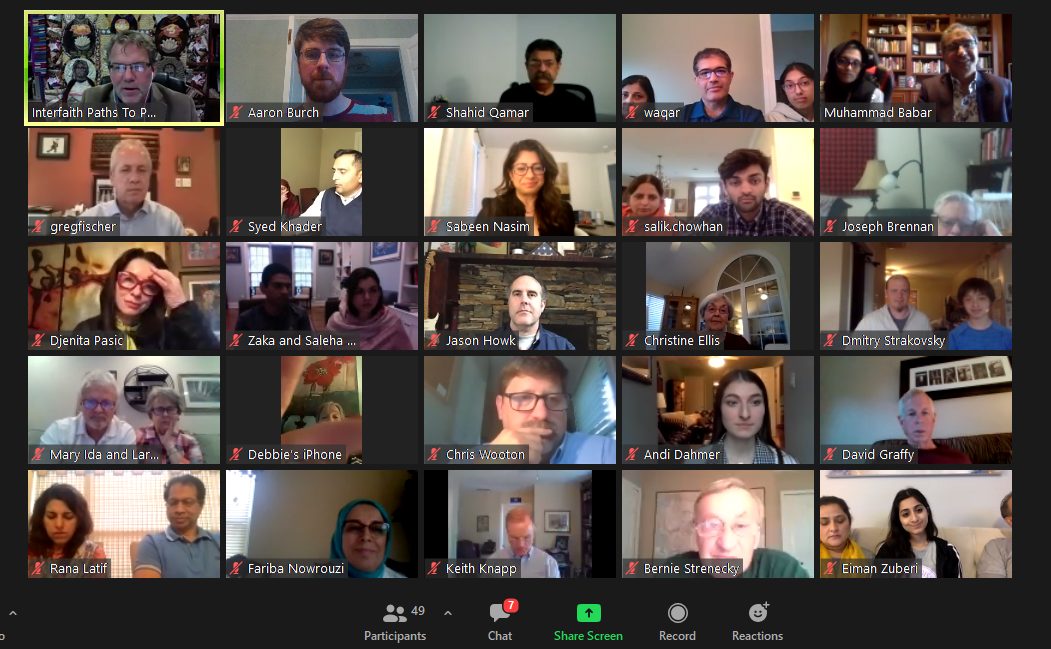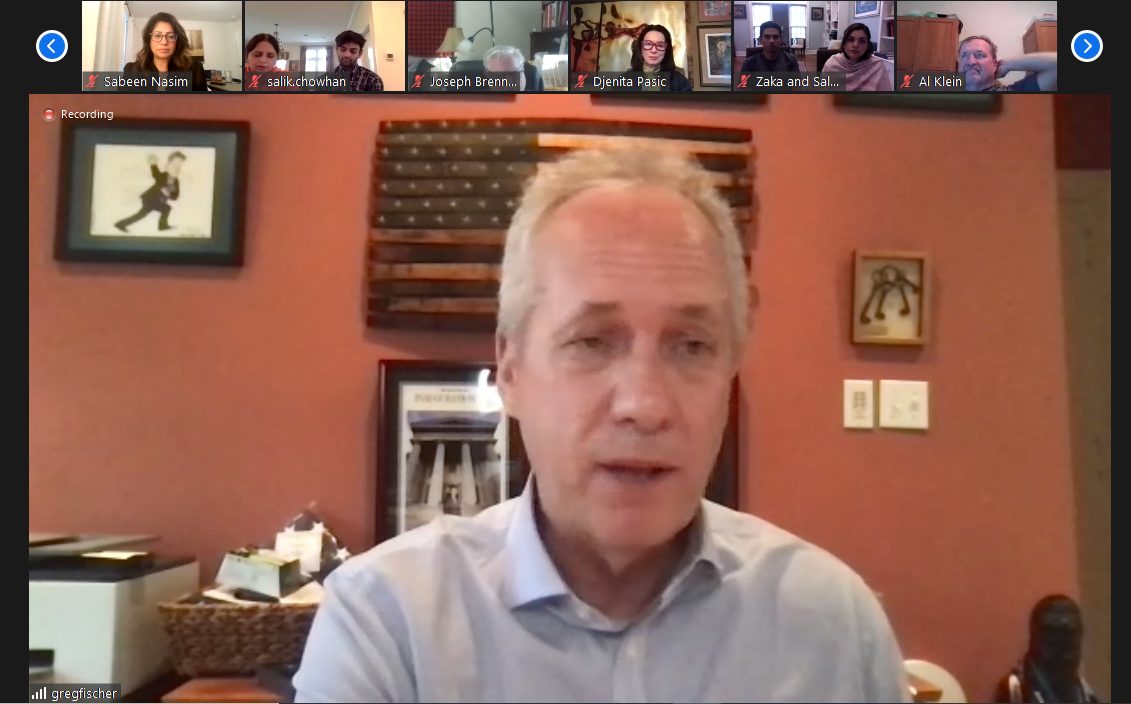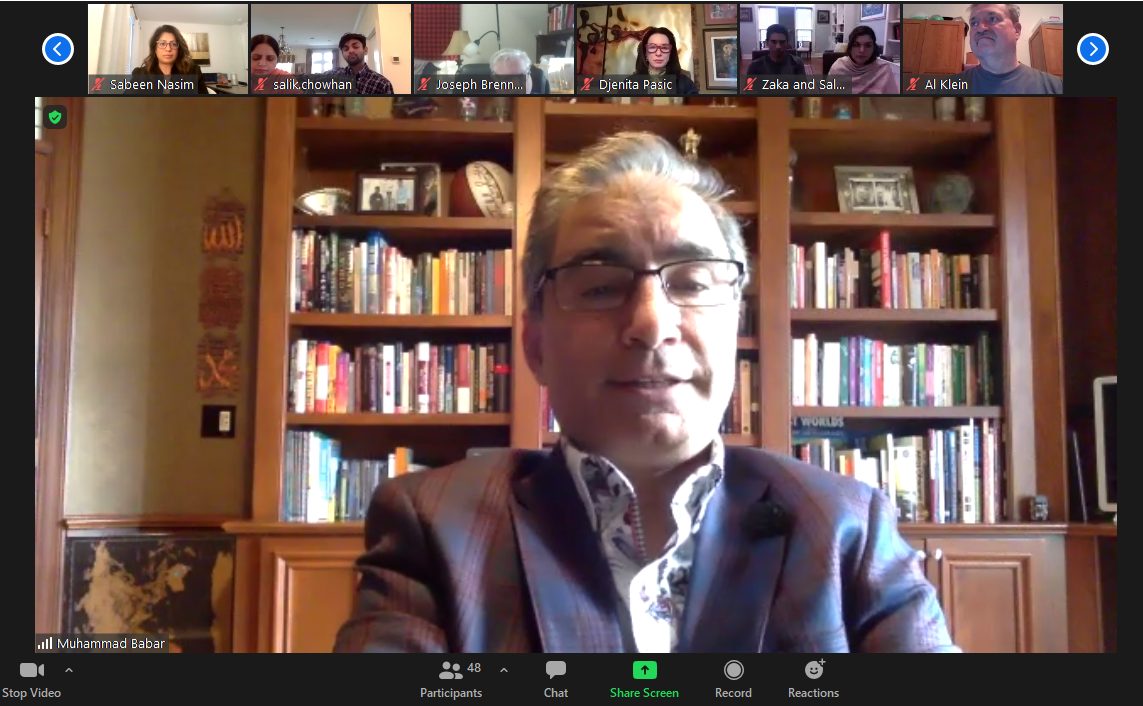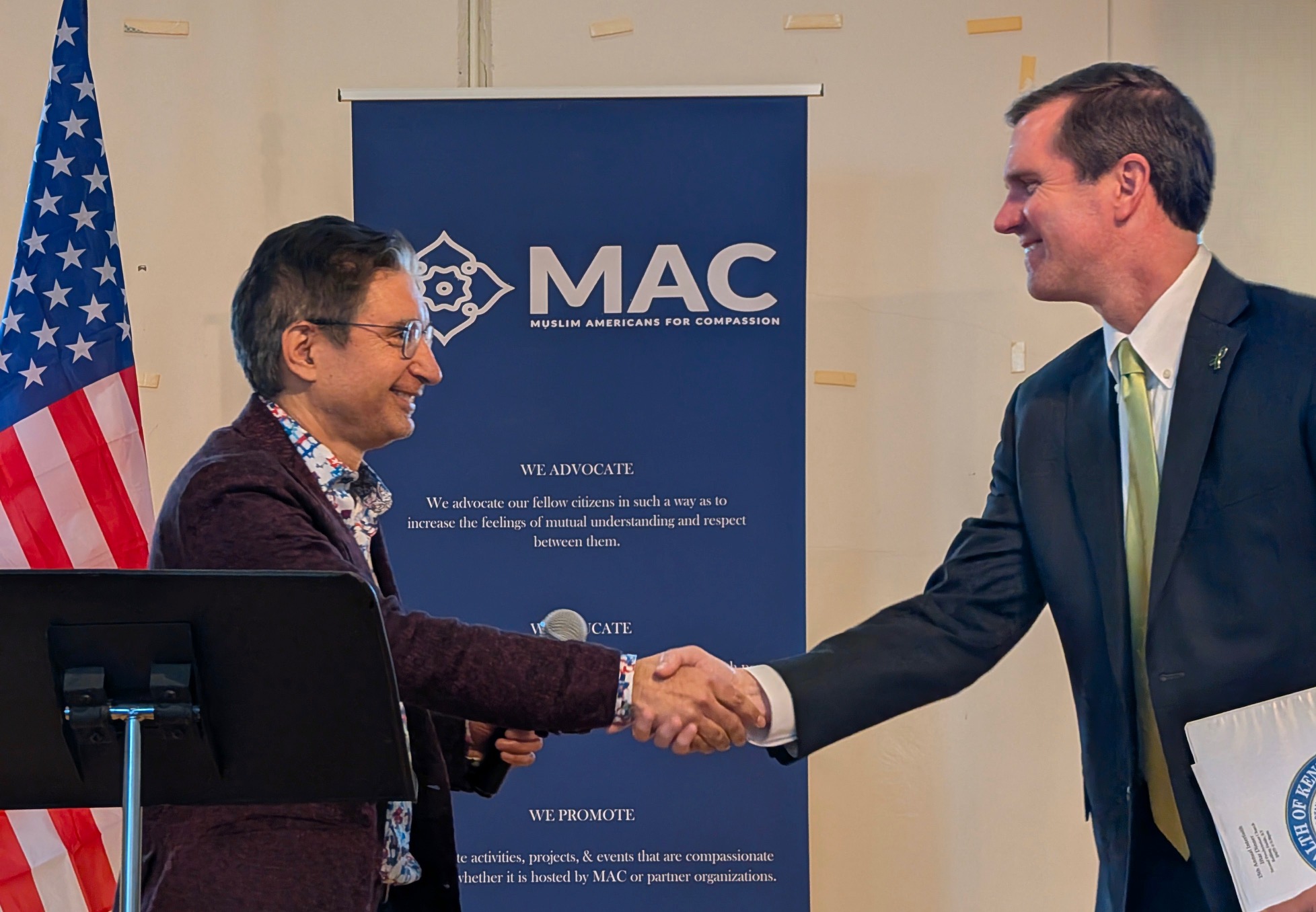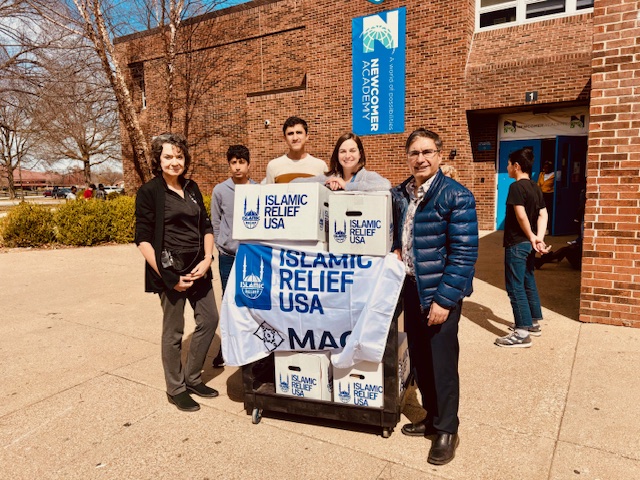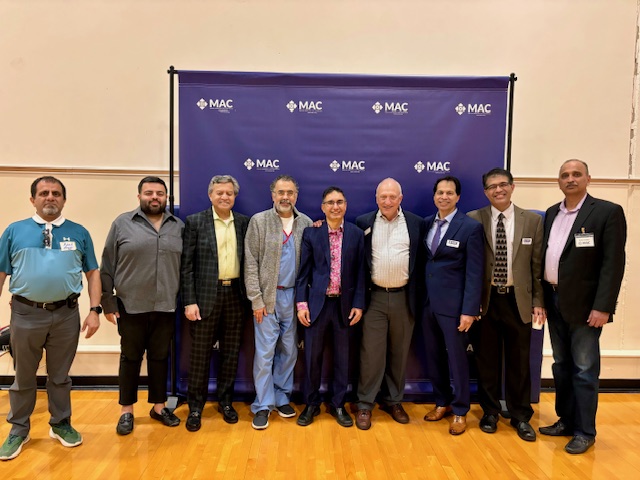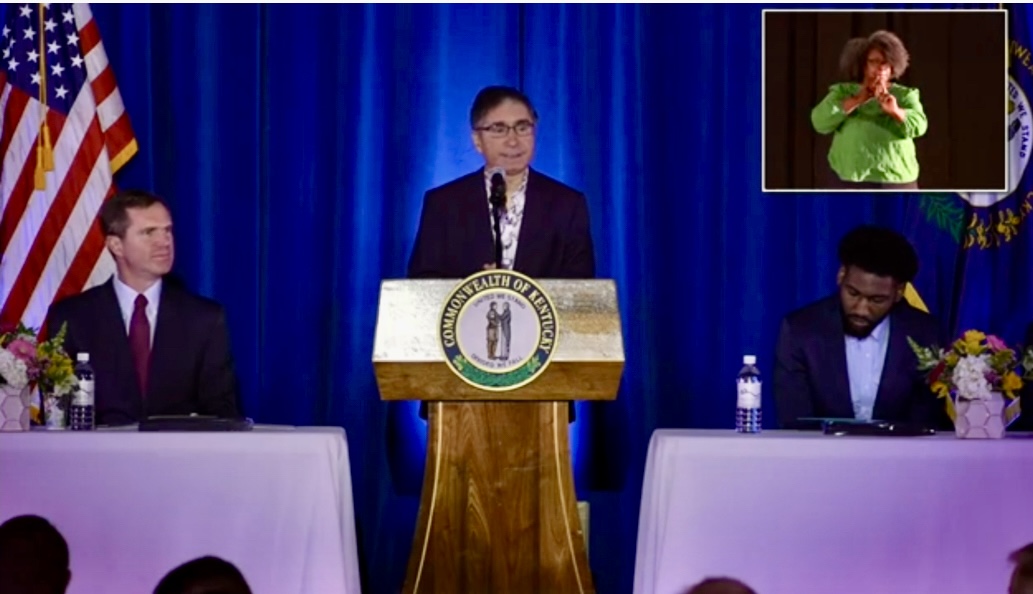Keeping the Flame of Community Alight: Savoring the 11th Annual Interfaith Iftar Dinner
By Aaron Burch
Over the last 12 months, there’s been a lot of talk about ‘Zoom Fatigue.’ For those blissfully unaware, Zoom Fatigue is the internal dread of continuous meetings held in a digital space. For tele-commuters across the country, this is a necessary safety precaution in the age of Covid-19. Luckily, a salve to this fatigue has been discovered, and the answer is simple.
To escape Zoom Fatigue, simply take part in a thoughtful, engaging, enlightening and heartwarming virtual meeting like the 11th Annual Interfaith Iftar Dinner. On the evening of April 20, dozens of families and community leaders gathered online to celebrate Ramadan, a holy month of fasting and introspection for the Islamic faith. The relief and joy associated with the event is palpable.
Jud Hendrix, Executive Director of Interfaith Paths to Peace, made introductions as guests logged on at 7 p.m. “Welcome to one of my favorite experiences all year,” Hendrix said. “This is one of the beautiful things about Zoom. We get to see each other, open our hearts and send people love.”
Hendrix explained the itinerary for the evening. Dr. Muhammad Babar, president of Muslim Americans for Compassion, would speak and Louisville Mayor Greg Fischer would follow. Dr. Syed Khader would sing a traditional Muslim prayer and then all attendees would break into small groups to connect with friends and strangers. The event would close around 8 p.m. as the sun set and guests could break their fast.
“God willing, we will break bread in person next year,” prayed Dr. Muhammad Babar. “Covid-19 has really changed our lives, but in life we need a positive attitude. One silver lining I have found is Zoom. We have people from different states able to join us, including a friend from Louisiana here tonight. This has brought our families together.”
Prior to the pandemic, Louisville’s Interfaith Iftar Dinner had become a significant multicultural gathering in the region. In 2019, more than 500 individuals gathered at the Second Presbyterian Church. In 2021, RSVPs were limited to 100 log-ins. The actual attendance was higher as, through the screen, you could see families huddled around their monitors listening to the speakers and sharing in the community.
Dr. Babar continued, referencing the Derek Chauvin trial for the murder of George Floyd that had concluded with a guilty verdict earlier in the day. “Together, one step at a time, we will make sense of the chaos around us. We can’t solve all the issues of this world, but there is goodness in everyone. We are not better off if we eliminate the ‘other.’ It would make the world a worse place because we would lose our diversity. We would lose the beauty we see around us. This evening is one of the healing spaces we have.”
Mayor Greg Fischer, a long-time champion of interfaith relationships in Louisville, echoed Dr. Babar’s thoughts. “Louisville has gotten heat for being a so-called ‘Compassionate City’ following Breonna Taylor’s death. But what is compassion? Compassion is the hope and respect we have for each citizen as we realize our full potential.
“We get knocked down, but we get back up. We give each other grace,” said the Mayor. “To deny that we’re living in tough times in America would be closing our eyes. We see what’s happening with the tragic killings, the loss of life in communities of color. We must have faith that it is taking us to a better place. We need continuous momentum against these evil acts. That is one reason that events like this Iftar Dinner are so important. It defies people that may be against the notion of compassion. We are in this together as one people.”
Mayor Fischer ended his message by encouraging everyone to keep the faith, to carry the light into a new era. “Coming out of our tragedy of last year, [Louisville] needs to show the rest of the country what it looks like to advance on racial equity, to lean into injustice. My humble challenge to everyone is to amplify these efforts. Unify around these challenges. That’s how you get through tough time together.”
Dr. Syed Khader returned the focus to Ramadan with a quick prayer and a word on fasting, explaining to the audience that “Ramadan is a month of giving, of reflection, of fasting. It’s part of our religion to understand people who are suffering. What better way is there to understand a person’s suffering than to understand their hunger?”
With 15 minutes to go, the audience broke into small groups for more in-depth conversation. This author’s group was made up of four Zoom feeds and conversation quickly turned to the whys and wherefores of Ramadan. Professor Fariba Nowrouzi-Kashan and the Zuberi family of Louisville helped me and Bernard Strenecky of WKU learn more about the traditions of the Holy Month.
“Ramadan is about self-reflection,” said Eiman Zuberi. “When you’re fasting, the pit in your stomach connects you to others. It reminds you why you sacrifice and makes you examine what’s important. Fasting is about self-awareness and self-discipline more than anything else.”
Professor Nowrouzi-Kashan agreed, saying “After 30 days of fasting, we should see the differences in ourselves. Practicing this with good intentions, we will be different people. All around the world, our family is just one. Ramadan brings us closer together, and it humbles us to appreciate what we have.”
As the sunset, the meeting closed unceremoniously. Each guest logged off to break bread separately, but with the knowledge that thousands of likeminded souls were doing the same. Next year, when this celebration returns to being an in-person event, the two Interfaith Iftar Dinners that were held virtually during the Covid-19 pandemic will be remembered as a keeping of the flame. Thank you to the volunteers and guests who made these evenings possible.

